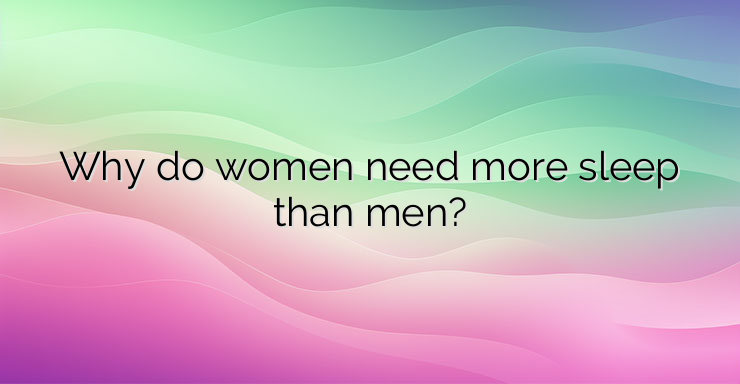There is little difference in the amount of sleep that men and women need. On average, women need 12-13 minutes more sleep than men. It may seem like an arbitrary difference, but there are reasons why a woman’s body requires a bit more rest than a man’s. Women are more prone to sleep problems than men – creating a need to catch up on sleep. Women are also more prone to developing various sleep disorders such as insomnia and restless legs syndrome. Gender differences in sleep emerge during puberty. Unlike men, teenage women miss out on the recommended 8 hours of sleep per day. They are also more prone to other conditions such as depression that contribute to poor sleep quality. Sleep problems are especially common during major hormonal changes in a woman’s life, such as menstruation, pregnancy and menopause. A third of women experience cramps, headaches and bloating that cause sleep disturbances during their menstrual cycle. Women with severe PMS are more likely to report disturbing dreams, sleepiness, fatigue, and trouble concentrating. Insomnia is difficulty falling asleep throughout the night. As a result, sufferers do not feel alert when they wake up and experience difficulties during the day. Insomnia is a common sleep disorder, but women are 40% more likely to suffer from it than men. They are also more likely to experience symptoms of daytime sleepiness. Women may be more prone to insomnia for several reasons: Hormones – hormonal changes associated with menstruation, pregnancy and menopause can affect the sleep/wake cycle. Mood disorders – women are more likely to suffer from anxiety and depression than men, which can lead to insomnia and other sleep-related problems. Restless legs syndrome causes a tingling sensation in the legs that occurs when a person lies down, followed by moving the legs to reduce the discomfort. Because symptoms occur when lying down and can only be relieved by movement, many women with restless legs syndrome have difficulty sleeping. Women are twice as likely as men to suffer from restless legs syndrome and the condition can cause symptoms such as: Feeling sleepy and tired during the day; Anxiety, anxious feelings arising due to lack of sleep; Feeling sad, angry and unwell due to lack of sleep. These co-occurring factors can have a combined effect, making sleep even more difficult to achieve. Sources: healthnews.com


Leave a Reply